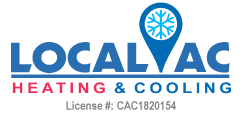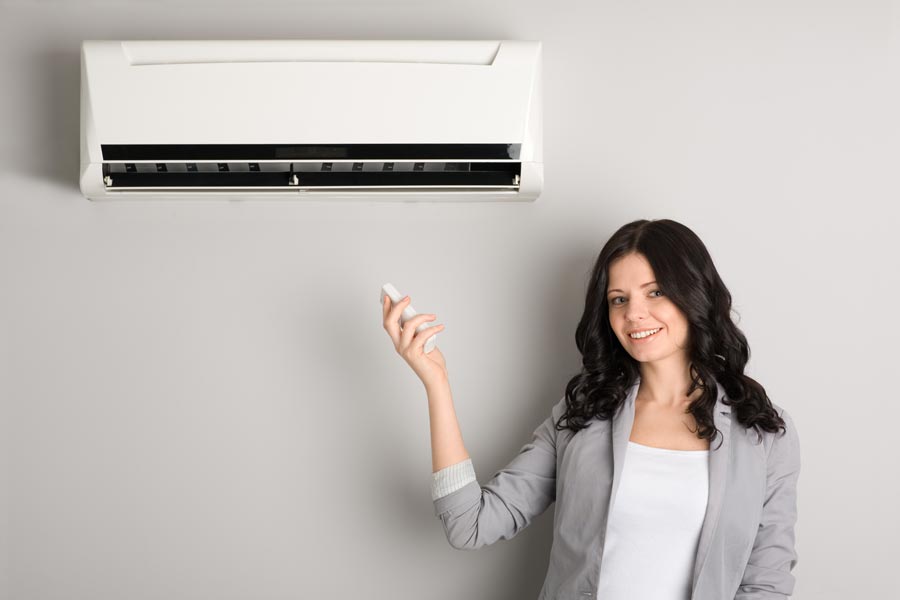Every HVAC system, whether residential or commercial, requires maintenance. However, you can reduce the cost of maintaining your HVAC system by carrying out a few easy preventative maintenance tasks yourself.
From buying a high-efficiency filter to checking the clearance around your outdoor AC units, a variety of tactics can help you reduce wear and tear on your HVAC system while keeping your energy bills as low as possible.
Ready to lower your bills and keep your HVAC system in optimal condition? Try implementing one, two or all of the six simple, user-friendly preventative maintenance tips we’ve listed below.
Switch to a high-efficiency filter
Most HVAC systems include good quality filters, although few are as good as the high-efficiency filters you can buy from third parties.
High-efficiency filters have a pleated design and use an electrostatic charge to attract dust, dirt and other particles. This helps them more effectively filter out unwanted particles that otherwise end up in your home, apartment or commercial space’s air supply.
This increase in filtering efficiency can extend the lifespan of your HVAC system while reducing your energy bills — a win-win situation for any homeowner.
Remove debris from outdoor AC units
There are two parts to your HVAC system — the internal equipment, and the outdoor AC unit. In fall and winter, it’s easy for leaves, dust, dirt and other debris to collect around your outdoor air conditioning unit, causing excess wear and tear.
Over time, this can take a toll on your air conditioning unit and increase the number of regular air conditioner repair and maintenance needed to keep it in working condition.
Every few months, take a minute or two to brush away debris that collects around your HVAC unit. Small objects like leaves, branches, dirt and grass clippings might seem like a non-issue, but it’s surprisingly easy for them to make their way inside the unit.
Check the clearance around your AC unit
As well as removing debris from the area around your outdoor AC unit, it’s also important that you check the clearance distance.
Most outdoor air conditioning units need to be at least two feet away from walls and structures for optimal performance. If the gap between your HVAC unit and its surroundings is smaller, it could have a negative effect on performance and energy efficiency.
Ultimately, this is something that should be taken into account during installation. However, it’s also worth checking up on your HVAC unit regularly to make sure objects such as furniture and other outdoor items aren’t in the way.
Replace your air conditioning filters regularly
Over time, the filters inside your air conditioning system can become clogged with dirt, dust and other debris, including debris that contains bacteria.
This can have negative effects not only on your health and wellbeing but also on the efficiency and performance of your HVAC system. On average, most HVAC systems suffer a five to 15% efficiency loss as a result of an overly clogged and dirty filter.
Because of this, it’s important to check and replace your air conditioning filters on a frequent basis. Most HVAC system manufacturers recommend replacing filters every 45-90 days in a residential setting or at least twice a year for vacation homes or single-occupant spaces.
Got pets? Use a denser air conditioning filter
Pet hair can have a surprisingly large impact on your HVAC system. Hair and dander from dogs and cats can quickly build up inside your air conditioning system’s filters, increasing load on the HVAC unit and affecting your home’s air quality.
Switching to a pleated, high-density filter can help you reduce the effects of pet hair on your AC system. It can also help improve your HVAC system’s efficiency, resulting in a slight reduction in your air conditioning and heating costs.
It’s also important to replace your AC filters more frequently if you’re a pet owner. Instead of the typical 90 days, try switching to a 45-day replacement schedule for an improvement in air quality and system efficiency.
Make sure your HVAC system is regularly serviced
Finally, it’s important to check that your HVAC system is regularly serviced by an experienced, qualified commercial ac company.
From replacing lost coolant to removing dust and debris, an HVAC technician can help to keep your system in optimal condition. Over time, this can extend your HVAC system’s lifespan and make breakdowns, efficiency issues and other common problems far less common.
Remember, HVAC maintenance isn’t optional — it’s essential. Taking good care of your HVAC system from day one will help you lower your energy consumption, benefit from higher quality air and reduce your HVAC-related costs over the long term.

